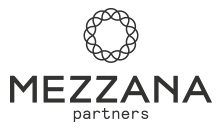Whole sectors of the economy are disappearing while start-ups offer services that weren’t even imagined five years ago. As a result, people must change how they work and interact with colleagues and customers and adopt new technologies, while letting go of old traditions and working practices. Yet we still seek human connection, a sense of belonging, and a belief that our work matters.
Our response – harness the power of teams
We want to serve the needs of our clients to help them make a real and purposeful contribution in this changing and complex world. We believe that resilient and sustainably successful organisations are built on exceptional teams, led by extraordinary leaders. Thinking and practice in progressive and prosperous organisations, backed by Deloitte’s1.2 recent research, shows that business success is based on building agile, aligned and highly connected teams. We believe that working with teams is the key to unlock new ways of learning and performing at work:
As the most powerful vehicle for learning and improving performance
Developing the skills and capabilities of individuals, especially leaders, is necessary but not sufficient. All too often, participants in individually focused initiatives, whether executive coaching or leadership development programmes, can struggle to implement new learning and behaviours in an un-receptive or uninformed team environment. Leadership itself is not simply a matter of individual skills and behaviours – it is a relational activity that happens between a leader and other people. So, it makes sense to provide opportunities for leaders to develop and grow within their real-life context, working with their teams. When the development focus expands beyond the individual to the team, new possibilities emerge for sustaining and applying learning, through stronger peer relationships and shared accountability. As well as delivering on the organisational objectives, teams can become the engine room for learning and enhancing performance.
To break down barriers across an organisation
Building connections between teams is also the fastest way of breaking down siloes. When people experience a sense of true connection with others, and recognise their shared contributions to a common purpose, it becomes possible to reduce conflict and misunderstanding. Working at a team level makes it easier for people to develop a consistent set of performance habits that foster productive dialogue. This makes it easier for people to collaborate with and understand colleagues in different parts of the business.
As levers of strategy and culture change
We see culture and strategy as two sides of the same coin, they are interdependent components of a successful business. Simply, they answer the questions of why the business exists (purpose), what we do (strategy) and how we do it (culture). Any attempts to implement a new strategy must also consider how the culture needs to change to support it, and any attempts at culture change must be in support of the company’s strategic aims. And both culture and strategy need to be relevant to the business’s purpose – ideally something that people care about!
Teams are the ideal vehicle for implementing strategic / cultural change. Working only with individual leaders is too slow, while trying to influence a whole company at once soon becomes impractical. Teams are the sweet spot. In team conversations, leaders help people to understand the real impact of new strategic initiatives in their working context. They can identify how to apply the changes in their work, and they can support each other to make these changes real.
References
1. 2019 Deloitte Global Human Capital Trends p52-58: Organizational performance It’s a team sport. see article here >
2. 2017 Deloitte Global Human Capital Trends p19-25: The organization of the future. see article here >





